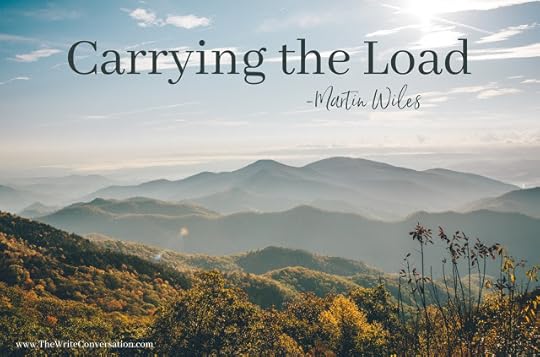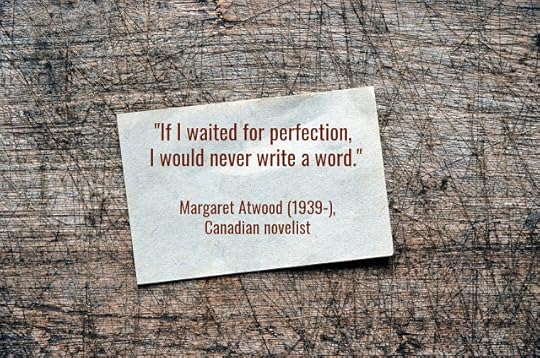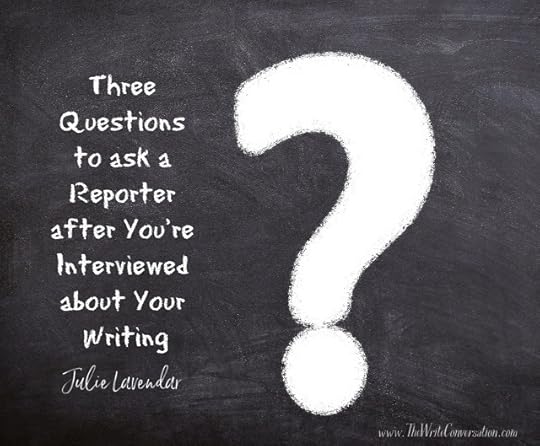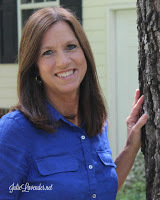Edie Melson's Blog, page 194
July 15, 2020
Evaluation of Annual Writing Plan

by Susan U. Neal RN, MBA, MHS @SusanNealYoga
We are halfway through the year, and it’s time to do a midyear writing/business goal assessment. It has been a tumultuous year for everyone. If you launched a book in 2020, you might want to reassess how to navigate the new climate. Consumer disposable income is scarce. Where are you with your writing business?To evaluate my business plan, I reviewed my 2020 goals that I created in January (check out New Goals & A New Writing You blog). My biggest accomplishment for this year was to create a course, 7 Steps to Reclaim Your Health and Optimal Weight. It took a pandemic to get me to stay home and complete it as I was not attending writer conferences. What did you accomplish during the pandemic shut down? At first, I was paralyzed and couldn’t work (see Fighting Pandemic Burnout article). Then I acclimated and enjoyed the uninterrupted time.
As authors it is prudent to diversify our income. Courses are an excellent way to do that. To help me create my first course, I took Saundra Dalton Smith’s course “Launch Your 1st Course in 30 Days. I launched my course in June, which ended up being a terrible time, as many other authors have experienced with their book launches during the pandemic.
The next goal I accomplished was updating and adding Amazon categories for all my books. This change catapulted my book, 7 Steps to Get Off Sugar and Carbohydrates , to become a #1 Amazon bestseller, and it continues to rank #1 four months later. Check out my article, Improve Your Book’s Amazon Rank, to find out how you can improve your book’s rank too!
Even though I am attaining success as an author, it is frustrating when Amazon takes a chunk of the profits through Amazon ads. Have you experienced this? There has to be a better way to make the writing business profitable. I sought God’s guidance on how to expand my business.
In June I took an online course, Wellness Business Boot Camp. We should attend writer conferences and gain wisdom through courses. I was at a turning point and needed new ideas. Since all the writer conferences for the past six months were canceled, an online course was the perfect option. This course helped me polish my website and course sales page. There is always room for improvement. Have you attended an online conference recently? Here are several that I recommend:Rebound Your Highest—Come Back Strong After the Struggle, July 24–25, 2020She Speaks Online—A Communicators Conference, July 31 and August 1, 2020AWSA Virtual Conference (must be a member of the Advanced Writer and Speaker Association), August 14–15, 2020She Writes for Him Conference—was filmed live this Spring and is available as an online courseReal Makers - The Pandemic Edition. This is a conference for Christian Speculative fiction, July 16-18, 2020
As I tweaked my 2020 writing goals, I looked for ways to expand my reach. Therefore, in the second half of this year, I will hire a search engine optimization (SEO) analyst to help move my website ranking higher in Google. There’s a strategy to this such as ensuring that you have at least one “do follow” link back to your website in every article or guest blog that you write. This shows Google that your website is important. Unfortunately, in many of my articles, I linked my book to Amazon instead of my website. Acquiring knowledge is crucial as we travel this writing journey.
Instead of writing my next book, I’ve decided to pursue creating additional courses to correspond with my Christian healthy living theme. You can make more money from a course than a book. Our writing business needs to make a profit so it can sustain itself and our corresponding ministries.
Once you are an author, you have established yourself as an expert in the subject of your book. Many readers may need assistance with going deeper into your book’s subject matter, especially nonfiction. If you create more than one course, make sure they are not competing but instead complimentary.
As an expert you can offer additional solutions to people who struggle with topics from your book. Have you thought of other products you could create associated with your book’s theme? There is no better time to create those products because in-person conferences and travel is limited. Please share your product and course ideas below.
TWEETABLEEvaluate Your of Annual Writing Plan - tips from Susan U. Neal, @SusanNealYoga on @EdieMelson (Click to Tweet)
 Susan U. Neal, RN, MBA, MHSSusan’s mission is to improve the health of the body of Christ. She has her RN and MBA degrees, as well as a master’s in health science. She is a CERTIFIED HEALTH AND WELLNESS COACH with the American Association of Christian Counselors. She published five books, the Selah award winner 7 STEPS TO GET OFF SUGAR AND CARBOHYDRATES, CHRISTIAN STUDY GUIDE FOR 7 STEPS TO GET OFF SUGAR AND CARBOHYDRATES, HEALTHY LIVING JOURNAL, SCRIPTURE YOGA a #1 Amazon best-selling yoga book, and YOGA FOR BEGINNERS which ranked #3. She published two sets of Christian Yoga Card Decks and two Christian Yoga DVDs that are available at CHRISTINAYOGA.COM. Her digital product HOW TO PREVENT, IMPROVE, AND REVERSE ALZHEIMER’S AND DEMENTIA is a great resource. To learn more about Susan visit her website SUSANUNEAL.COM You can also connect with Susan on FACEBOOK, TWITTER, and INSTAGRAM.
Susan U. Neal, RN, MBA, MHSSusan’s mission is to improve the health of the body of Christ. She has her RN and MBA degrees, as well as a master’s in health science. She is a CERTIFIED HEALTH AND WELLNESS COACH with the American Association of Christian Counselors. She published five books, the Selah award winner 7 STEPS TO GET OFF SUGAR AND CARBOHYDRATES, CHRISTIAN STUDY GUIDE FOR 7 STEPS TO GET OFF SUGAR AND CARBOHYDRATES, HEALTHY LIVING JOURNAL, SCRIPTURE YOGA a #1 Amazon best-selling yoga book, and YOGA FOR BEGINNERS which ranked #3. She published two sets of Christian Yoga Card Decks and two Christian Yoga DVDs that are available at CHRISTINAYOGA.COM. Her digital product HOW TO PREVENT, IMPROVE, AND REVERSE ALZHEIMER’S AND DEMENTIA is a great resource. To learn more about Susan visit her website SUSANUNEAL.COM You can also connect with Susan on FACEBOOK, TWITTER, and INSTAGRAM.
Published on July 15, 2020 22:00
July 14, 2020
10 Tips for Irresistible Writing, Part 4

by Katy Kauffman @KatyKauffman28
The heart of irresistible writing is how the message applies to the reader. I’ll come back again and again to a blog if I know I can find something that speaks to me. I’ll keep buying books by an author if I know he or she will show how Scripture is relevant to what I’m going through.
Takeaway is key. And so are titles.
In this last post of my series on ten tips for irresistible writing, I want to share some ideas for how to benefit the reader in every piece of writing with takeaway and grab their attention with a stellar title. Where should we put takeaway in our writing? Where can we find ideas for a great title? Here are the last two tips. 9. Don’t save all of the takeaway for the very end—infuse it into every part of your writing.Make your writing irresistible by sprinkling the “good stuff” throughout it. Don’t save the takeaway for the last paragraph of a chapter or an article. Give your readers reason to read every page and every paragraph. Come alongside them as a friend in both your voice (style of writing) and your content, and fulfill your purpose for writing.
In every chapter of your book, give readers something to take away with them that will benefit their daily lives. Make each chapter so well-written and organized, filled with insight and examples, that they can’t wait to read the next chapter.
In your articles, put takeaway even in the lead-in as you transition to your main point. Every illustration we use is fodder for great takeaway. The application that we make to the reader’s life in our lead-ins, can be echoed or amplified in the middle of an article and at the end. That’s why picking the best lead-in is so important. It can help us to introduce our main point and create takeaway that will be etched in the reader’s memory.
Don’t forget—when we’re writing about Scripture, application needs to be at the heart of our writing. As we show how Scripture is relevant to life today, we can include takeaway that will help our readers know God better, love Him even more, and understand how to walk with Him day by day. 10. Draw from three places in your writing to create a stellar title. Titles can be the hardest part of a book or an article to create. Of course, we need to state our main idea in a complete sentence before we write, so we know where our writing is headed. But we may not always know how to title our piece.
The saving grace for us writers is that each piece we write has built-in inspiration for the title—the lead-in, the main point, and the ending paragraph. If you’re having trouble creating a title, look at your lead-in. What’s your slant? Is there a metaphor that you’re using or a story that you’re building on? Is there some phrase that you can use in the title? If the lead-in doesn’t help, write down your main idea for the book or article. Is there a phrase you can pull from that sentence? Finally, and probably the best idea, look at your ending paragraph. Usually, that’s where we drive home our main point. Is there a phrase that would capture your message and become a great title? These three places can supply us with wording we can tweak to create an irresistible title.
Where do you most often find inspiration for creating titles? Is it your lead-ins, main points, or the endings? Tell us in the comments, and join the conversation!
TWEETABLE10 Tips for Irresistible Writing, Part 4 - @KatyKauffman28 on @EdieMelson (Click to Tweet)
Don’t Miss the Rest of This Series!10 Tips for Irresistible Writing, Part 110 Tips for Irresistible Writing, Part 210 Tips for Irresistible Writing, Part 3
10 Tips for Irresistible Writing, Part 4
 Katy Kauffman is an award-winning author, an editor of Refresh Bible Study Magazine, and a co-founder of Lighthouse Bible Studies. She loves connecting with writers and working alongside them in compilations, such as Feed Your Soul with the Word of God, Collection 1 which is a 2020 Selah Awards finalist. Lighthouse’s newest compilation, The Power to Make a Difference, released January 2020.
Katy Kauffman is an award-winning author, an editor of Refresh Bible Study Magazine, and a co-founder of Lighthouse Bible Studies. She loves connecting with writers and working alongside them in compilations, such as Feed Your Soul with the Word of God, Collection 1 which is a 2020 Selah Awards finalist. Lighthouse’s newest compilation, The Power to Make a Difference, released January 2020. In addition to online magazines, Katy’s writing can be found at CBN.com, thoughts-about-God.com, the Arise Daily blog, and two blogs on writing. She loves spending time with family and friends, making jewelry, and hunting for the best donuts. Connect with her at her blog, The Scrapbooked Bible Study, and on Facebook and Twitter.
Published on July 14, 2020 22:00
July 13, 2020
The Power of the Writer's Descriptive Eye

by Cindy K. Sproles @CindyDevoted
When I began my writing career, a dear friend put his arm around me and said. “Cindy, you write beautifully. The words you choose are different and new but. . .”
Don’t we all hate the but? I cringed as I waited for him to finish. “But it’s like you keep your readers at a distance. The words are on the page in front of me, but you won’t let me step in to see and feel. You need to learn to bring your descriptions to life. Make the reader feel the scene.”That was a knock in the socks. How on earth do you correct that? Especially when I wasn’t sure what the “that” was.
This began a long search for learning to look deeper into my scenes, my characters, and their surroundings. I remember Eva Marie Everson once saying, that she sometimes had to squint to see the details of a character. Wow, when you squint, you really have to look hard. And look hard, I did.
My friend sent me a photo of a front porch with only one line of instruction. Describe this. Over the years I’ve used this same technique with folks I mentor.
I remember fretting over the instruction and penning carefully thought out words only to have him return it to me and say, “Nice job telling me how it makes you feel. Now do what I asked. Describe this.” I honestly thought I would cry but instead, I did as Eva Marie suggested, and I squinted.
I enlarged the photo so I could see the detail. Suddenly the bends in the wicker looked like hills and valleys stringing across the chair. The knots in the wood bore their grain. Each slat looked as though the ocean wash had covered it and left its footprint. Water dripped like tears over the side of the flower pot forming a puddle of brownish water on the table. And the flower, tender and velvet-like, appeared to hang by a thread on the stem gently moving with the soft morning breeze. Pink veins trailed around the petal, drawing pencil-like lines around the edges and then disappearing into the mouth of the stem. A fly paced along the wooden handrail, flitting his wings in hopes to find a way clear of the screen. That same breeze gingerly moved the rocker, ever so slightly, it’s rungs gently tapping a rhythm. And the morning heat steamed upward giving the scent of fresh-cut wood and lilac.
My point is, learn to squint. Look deeper at everything. Ask questions like how would my fingers move if I were to motion someone over? Allow your mind to become a microscope and pull out the details we know are there but often fail to see.
Description is vital to your story. It helps build the fiction world you want readers to live in so why not allow it to burrow into their souls? For every sense you ping, your reader is drawn in deeper because now they are allowed to feel and touch what the characters see.
Characters are not a single layer. They are all built from layers of life. Characters have likes and dislikes. It’s not enough to say, John hated chocolate ice cream, but what was the look on John's face when someone handed him a chocolate ice cream cone? How did his mouth contort? Did his eyes widen or squeeze tight? Did the thought of the cone kick off his gag reflex? Learning to give the reader these very minute details make your characters move from flat on the page to three-dimensional. It’s also important to remember that we give the reader what is necessary to deepen the character or the scene rather than overloading them with long, boring descriptions and information dump. There is a happy medium.
When you are developing your character, don’t forget there is more to each one than just the issue they currently face. Each one will have depth, interests that shape who they are, and friends who interact both good and bad. They will have internal thoughts – some good, others bad. Some are acted on, while others are not. Let your character become real to the reader. If you create a character without flaw, then you have just ironed them flat on the page.
There are basic steps for building your characters: 1) introduce them by name on the first page.
2) Let your readers peek inside their character.
3) Give them history, but drop it in tidbit by tidbit
4) make them real, vulnerable, imperfect but also give them tender, heroic, and classic attributes too.
5) find your personal scab and scratch it till it bleeds aka draw from personal experience
6) show, don’t tell and
7) research their profession or lot in life so the information is not skewed. Still, with all these basics, nothing rounds a character better than the inclusion of their possessions and surroundings. The clothes they wear, the furniture in their house, the car they drive, their thoughts, hurts, joys. All this makes your characters life-like.
When you let go of what you think is the simple character and scene development and allow yourself to truly look deeper at your work, you will find new words, new ways to say old things that put a whole new spin on what you write.
Step outside the box. Practice looking hard. Squint. Then see what you find.
TWEETABLEThe Power of the Writer's Descriptive Eye - @CindyDevoted on @EdieMelson (Click to Tweet)
 Cindy K. Sproles is an author, speaker, and conference teacher. She is the cofounder of Christian Devotions Ministries and the executive editor for christiandevotions.us and inspireafire.com. Cindy is the lead managing editor for SonRise Devotionals and also Straight Street Books, both imprints of LPC/Iron Stream Media Publications. She is a mentor with Write Right and the director of the Asheville Chrisitan Writers Conference held each February at the Billy Graham Training Center, the Cove, Asheville, NC. Cindy is a best selling, award winning novelist. Visit Cindy at www.cindysproles.com.
Cindy K. Sproles is an author, speaker, and conference teacher. She is the cofounder of Christian Devotions Ministries and the executive editor for christiandevotions.us and inspireafire.com. Cindy is the lead managing editor for SonRise Devotionals and also Straight Street Books, both imprints of LPC/Iron Stream Media Publications. She is a mentor with Write Right and the director of the Asheville Chrisitan Writers Conference held each February at the Billy Graham Training Center, the Cove, Asheville, NC. Cindy is a best selling, award winning novelist. Visit Cindy at www.cindysproles.com.
Published on July 13, 2020 22:00
July 12, 2020
Speaking Tips for Authors to Switch from Live to Virtual

by Yvonne Ortega @YvonneOrtega1
The live training of the past is now virtual in many cases. It may remain so because of the pandemic, its side effects, and the savings from travel expenses, hotel, and meals. That savings increases attendance. Given the situation, how can we present professional virtual trainings?
Are we able to provide them with quality internet service? Perhaps we freeze on the screen and sound garbled. If so, what can we do to compensate for a poor connection? We may have to present our training from a neighbor’s home with better service. If we’re in a rural area, we can go into town and present at a friend’s home or a colleague’s office. We may have to build a relationship with someone in town to do so.
One of my friends schedules her virtual clients one day a week. She travels into town to a colleague’s office to offer her clients a quality connection.
Second, we provide clear sound.
What kind of a microphone do we have? A purchase of one that costs $1,000 with all the options isn’t necessary. We can look at the Blue Yeti plug and play, the Audio Technica with the swinging/scissor arm and a professional lavalier microphone, or the Samsung Q2u.
We can seek assistance from an electronics specialist or an experienced online trainer. Also, our budget will influence the final purchase.
Does our headset block out sound and distractions? We don’t need to spend $100-200 on a headset. I have a Logitech that works.
Third, we evaluate our physical background.
Is it professional? We don’t want our clients to see a pile of dirty dishes or laundry. With fewer distractions in the background, clients will hopefully focus their attention on the trainer.
An international trainer friend has a green screen. He also has professional pictures from his travels. He displays them one at a time in front of his green screen as a virtual screen. For example, when he works with a client from Spain, he puts up that virtual screen. The individual client or group delights in memories of his training in their country.
What about children and pets? If children are part of your professional brand and live training, include them. Karen Whiting writes for children and includes recipes and crafts in her books and downloadables on her website resources page. Many of her FB live videos include her grandchildren. They help her demonstrate the breads and crafts children can make. They go with her professional brand and could be part of her live training.
As we practice for an interview or presentation and prepare props, so does Karen with her grandchildren before her demonstrations. Days before the event, she gets many items ready.
Maybe you must present with your children and pets at home, but they’re not part of your brand. You’re alone without a babysitter. Have a co-facilitator help you.
Fourth, we ensure good lighting.
If the clients can barely see us, they miss our expressions and gestures. Dim lighting may make them feel like they’re in a dungeon. An overhead light fixture or a nightstand lamp won’t provide sufficient light. Some authors use the small LED ring light on their tablet or laptop. Others use the large ring light on a full-size tripod that folds.
I have the small ring light that fits on my iPhone on a mini plastic tripod. I also have the large ring light. Sadly, I have broken three mini plastic tripods and won’t buy another one. I have the large ring light on a full-size metal stand, but I dropped the lavalier and media remote and damaged them.
Include time to check the lighting, especially on a cloudy or rainy day. On a sunny day, we may need to adjust for the glare that comes through the windows.
With everything in place, we can still face a glitch. I learned the hard way to send my PP slides ahead of time to two people on the team.
In conclusion, to present professional virtual trainings, we:
Offer our clients a stable internet service.Provide clear sound.Evaluate our physical background.Ensure good lighting.What one step will you work on this week?
TWEETABLESpeaking Tips for Authors to Switch from Live to Virtual - @YvonneOrtega1 on @EdieMelson (Click to Tweet)
 Yvonne speaks with honesty and humor as she shares her life and struggles through presentations that empower women to find peace, power, and purpose through God’s Word.
Yvonne speaks with honesty and humor as she shares her life and struggles through presentations that empower women to find peace, power, and purpose through God’s Word. Yvonne’s background as a licensed professional counselor brings a unique perspective into the heart of women. She’s a speaking and writing coach and the owner of Moving from Broken to Beautiful®, LLC. She belongs to the Advanced Writers and Speakers Association, the Christian Authors Network, the National Speakers Association, and Toastmasters International.
She celebrates life at the beach, where she walks, builds sand castles, blows bubbles, and dances.
Published on July 12, 2020 22:00
July 11, 2020
Carrying the Load

by Martin Wiles @LinesFromGod
Share each other’s burdens, and in this way obey the law of Christ. Galatians 6:2 NLT
The bundle loomed larger…and his arms grew heavier.
My wife and I, along with another couple, were enjoying our final camping trip with our two oldest grandboys before they moved to another state, ten hours away. Both of us had already experienced a few sobbing spells, but we were careful not to let the boys see us. Not yet anyway. Maybe on moving day. Thankfully, both of these grandboys love to hike trails in the mountains—as long as they aren’t too strenuous. Oconee State Park in Mountain Rest, South Carolina, has several trails that dot the park. So, on the second day of our camping trip, I chose an easy one that meandered only a half-mile. My friend and I had hiked it two weeks before, so I knew the boys could handle it.
Getting to the trail by road proved more difficult than the trail itself. In fact, both boys were pooped before we arrived at the trailhead. After a break and a few gulps of water, we entered the woods and began the trail. I led, the boys followed, and our friend brought up the rear. Periodically, I stopped to help the boys identify particular trees and wildflowers—and just to make sure they were okay.
On one of my looks around, I noticed my oldest grandson had picked up a few sticks. I thought, He’s gathering these to start the fire they wanted so we could roast marshmallows. But when I commented to that effect, he said an emphatic, No! These were for his collection, not a fire.
“Well, I don’t know how you’re going to get them home,” I commented. “Your Meme will not let you put them in her van.”
We walked on, and every time I glanced back, he had a few more sticks in his little arms. By the time we finished the short trail, his pile of sticks had reached his chin.
“You sure you don’t want to put down some of those sticks,” I asked.
“Nope.”
As we headed back down the road to our campsite, I occasionally glanced behind me. I could see the sticks tiring him. But he’s persistent. No matter how many times I asked, he would not put any of them down to lighten his load. Nor would he consent to use them as firewood.
When we were within five minutes of our campsite, I looked back one more time. I could tell by the pain on his face—even though he tried to hide it with a smile—that he wasn’t going to make it. For some reason, those sticks were important to him.
“Hey Bud, you want Pop to help you carry some of those sticks?” I asked as I thought about what Paul told early believers.
He nodded his head. I grabbed half of them and watched a smile cross his face. We made it back to camp with all of his sticks. And, yes, later, he consented to use them to start the fire we’d use to roast marshmallows. I’ll never forget the good feeling I got when I helped my little tike of a grandson carry his load. A small effort of my part, but a big help for him. I hope he never forgets it either.
Opportunities abound for us to help others carry their loads. I recall the time when my wife did it by cooking meals for our neighbor as she cared for her husband who had suffered a stroke. All we have to do is pray, and God will send us carrying opportunities. Times when we can demonstrate empathy to others, not just sympathy. Sympathy feels sorry for, but empathy puts ourselves in someone else’s position and attempts to feel as they feel—which always puts a different perspective on things.
A good feeling rushed over me as I took half of the sticks from my young grandson. In the grand scheme of things, doing that seemed like a small thing. Of all the needs in the world, helping to carry sticks didn’t seem like much, but in God’s eyes my act probably seemed more significant than I could have imagined. And probably in my young grandson’s too.
Helping others carry their load gives them hope—something our world needs more of.
Ask God for opportunities to help someone carry their load.
TWEETABLE
Carrying the Load - encouragement from Martin Wiles @LinesFromGod on @EdieMelson (Click to Tweet)
 Martin Wiles is the founder of Love Lines from God (www.lovelinesfromgod.com) and serves as Managing Editor for Christian Devotions, Senior Editor for Inspire a Fire, and Proof Editor for Courier Publishing. He has authored six books and has been published in numerous publications. His most recent book, A Whisper in the Woods: Quiet Escapes in a Busy World, released in December 2019. He is a freelance editor, English teacher, author, and pastor.
Martin Wiles is the founder of Love Lines from God (www.lovelinesfromgod.com) and serves as Managing Editor for Christian Devotions, Senior Editor for Inspire a Fire, and Proof Editor for Courier Publishing. He has authored six books and has been published in numerous publications. His most recent book, A Whisper in the Woods: Quiet Escapes in a Busy World, released in December 2019. He is a freelance editor, English teacher, author, and pastor.
Published on July 11, 2020 22:00
July 10, 2020
Overcome Uncertainty and Write the Best Book You Can

by Beth K. Vogt @BethVogt
As I mulled over the topic for this blog post, I found myself wondering about you.
Yes, you.
The writer reading these words on Saturday July 11, 2020.
How’s your writing life at this moment? Has the “free time” provided by the pandemic fueled a writing spree? Or has COVID-19 bullied your creativity? Are you wondering how the upheaval in publishing will affect you in the future? Or are you already facing decreased sales? A delayed release? A canceled contract?
We’re all facing uncertainties right now, personally and professionally. I’m almost certain we’ve all asked the same question at least once, possibly multiple times: What can I do?
I’ve heard all sorts of answers to that single question.
You can keep sifting through the headlines for answers – both the national ones and the industry ones.
You can participate in some virtual writers conferences. Stay connected with writer friends and mentors via Zoom and Google groups.
You can read. A lot. Both good fiction and good nonfiction. And isn’t true that we struggled to find time to read B.C.? (Before Coronavirus)
But the one answer I hear over and over again is this: Write the best book you can.
No matter what the circumstances are in your real life – perfect or less than – no matter the path you’re walking in your writing journey right now – high road or low – no matter where you are in your career – dreaming the dreaming or living the dream – you can choose to write your best book starting now.
Writing your best book may mean giving yourself a guilt-free breather because you don’t create well under duress. But go ahead and journal. Your thoughts. Your prayers. Your story ideas. Your dreams. Just because you can … not because you have to.
On deadline? Accept that writing your best book right now is going to be hard. Offer yourself grace during the process. Your best book right now may not be the same as your best book a year ago – but it will still be a good book – the best you can produce in these circumstances.
Writing your best book right now might mean praying about possibilities. Daring to try something new. Being willing to wait until God opens a door … or until he makes it clear that, yes, a door is closed – not because he doesn’t love you, but because he does.
And the truth of God’s love for us never changes. (Psalm 136:26)
TWEETABLE
Overcome Uncertainty and Write the Best Book You Can - @BethVogt on @EdieMelson (Click to Tweet)
 Beth K. Vogt believes God’s best often waits behind the doors marked “Never.” Having authored nine contemporary romance novels and novellas, The Best We’ve Been, the final book in Beth’s Thatcher Sisters Series with Tyndale House Publishers, releasers May 2020. Other books in the women’s fiction series include Things I Never Told You, which won the 2019 AWSA Award for Contemporary Novel of the Year, and Moments We Forget. Beth is a 2016 Christy Award winner, a 2016 ACFW Carol Award winner, and a 2015 RITA® finalist. An established magazine writer and former editor of the leadership magazine for MOPS International, Beth blogs for Learn How to Write a Novel and The Write Conversation and also enjoys speaking to writers group and mentoring other writers. Visit Beth at bethvogt.com.
Beth K. Vogt believes God’s best often waits behind the doors marked “Never.” Having authored nine contemporary romance novels and novellas, The Best We’ve Been, the final book in Beth’s Thatcher Sisters Series with Tyndale House Publishers, releasers May 2020. Other books in the women’s fiction series include Things I Never Told You, which won the 2019 AWSA Award for Contemporary Novel of the Year, and Moments We Forget. Beth is a 2016 Christy Award winner, a 2016 ACFW Carol Award winner, and a 2015 RITA® finalist. An established magazine writer and former editor of the leadership magazine for MOPS International, Beth blogs for Learn How to Write a Novel and The Write Conversation and also enjoys speaking to writers group and mentoring other writers. Visit Beth at bethvogt.com.
Published on July 10, 2020 22:00
July 9, 2020
Bible Verses to Transform Your Writing Career

by Joshua J. Master @JoshuaJMasters
The life of a Christian author should be rooted in faith. Scripture is God’s love letter to us, directing our path and drawing us closer to Him. It’s “God-breathed and is useful for teaching, rebuking, correcting and training in righteousness…” (2 Timothy 3:16b NIV). So, we should also expect the Bible to transform how we approach our writing careers.
TRANSFORM YOUR DEFINITION OF SUCCESS
You can make many plans, but the Lord’s purpose will prevail. (Proverbs 19:21 NLT)
Look here, you who say, “Today or tomorrow we are going to a certain town and will stay there a year. We will do business there and make a profit.” How do you know what your life will be like tomorrow? Your life is like the morning fog—it’s here a little while, then it’s gone. (James 4:13-14 NLT)
Let’s start with the hardest one first. The greatest challenge for a Christian writer is our definition of success, that subtle line between our calling and our career. It’s important to set goals, improve our craft, and develop a career plan. But we also recognize in faith that the plan is a direction, not an outcome.
As this startling passage from James reminds us, we don’t know or control the future. So, if we’re only focused on a particular outcome, our careers will often discourage us. The pathway to publication rarely follows the same steps you’ve outlined in your mind.
That doesn’t mean we shouldn’t seek God in setting goals, but it means surrendering our obsession with the outcome so we can more clearly focus on the steps God is revealing in the moment.
TRANSFORM YOUR WORK ETHIC
Work willingly at whatever you do, as though you were working for the Lord rather than for people. (Colossians 3:23 NLT)
“Think about your audience.” That’s important advice when you’re a writer. You’ll hear it at every writing conference or online workshop you attend.
A vital section of a book proposal is identifying our target markets, where we research and write a detailed analysis of our primary, secondary, and even tertiary audiences. That’s about marketing, but when we it comes to transforming our work ethic, the people purchasing our books should always be a secondary audience.
Like many authors, I sometimes struggle with devoting enough time and energy to writing in the busyness of ministry and work. That’s usually a sign that I’m writing for the wrong primary audience.
When we take the inspiration of our first verse (Psalm 45:1) and combine it with a desire to work for God rather than ourselves or someone else (Colossians 3:23), it changes the way we approach our work.
TRANSFORM YOUR EDITING
Get all the advice and instruction you can, so you will be wise the rest of your life. (Proverbs 19:20 NLT)
Have you ever left a critique group completely deflated? It would feel great if we got a glowing review every time someone critiqued or edited our work—but it would be also be a colossal waste of opportunity.
Yes, we want to feel encouraged. But we’re given a community to help us grow—both spiritually and in the craft of writing. So, whether we’re working with a critique group, a professional editor, or taking classes, a desire to learn can transform our attitude toward editing.
Receiving instruction and advice from others, as this verse teaches us, brings wisdom. It doesn’t just improve our writing; it can improve us as individuals when we have the right attitude.
A heart for learning and growth can transform the negative feelings we can develop when editing our work or seeking those to help us in that task.
TRANSFORM YOUR RELATIONSHIP WITH FELLOW WRITERS
Pay careful attention to your own work, for then you will get the satisfaction of a job well done, and you won’t need to compare yourself to anyone else. For we are each responsible for our own conduct. (Galatians 6:4-5 NLT)
While we’re transforming our heart for editing and the critique process with Proverbs 19:20, we can also remove an enormous burden from our writing career by eliminating comparisons.
God has prepared you for a specific calling with specific outcomes. And those outcomes are to bring glory to His kingdom. We diminish that and dishonor God’s purpose for our writing when we constantly chase someone else’s.
As we discussed above, God gives us a community to encourage us and help us grow. But we belittle what God wants to do in and through us in that community when we taint it with envy.
When we focus on what God is doing in our own writing, it allows us to learn from and contribute to the writing community He’s given us more freely.
TRANSFORM YOUR PURPOSE
Beautiful words stir my heart. I will recite a lovely poem about the king, for my tongue is like the pen of a skillful poet.(Psalm 45:1 NLT)
This has been one of the most inspiring verses for me as I write sermons or author books. It reminds me that my purpose is greater than my weekly deadline.
Since Moses, God has used the written word as His vehicle to speak truth into a broken world. If you’re called to be a Christian writer, your responsibility in recording the heart of God can feel overwhelming.
But when we focus on our purpose rather than our goals, it can refocus our writing and our relationship with God. Our ultimate purpose is not to sell books or sign contracts (although that’s a wonderful outcome), it’s glorifying our king with the words He’s placed on our hearts. The difficulty is separating the words He’s given us from the words we want to interject.
Yes, we will have editors and input from others. We will have rewrites and frustrations, but when we focus on the simple purpose of this verse, it will transform our hearts as we write.
TWEETABLEBible Verses to Transform Your Writing Career - @JoshuaJMasters on @EdieMelson (Click to Tweet)
 Joshua J. Masters is a pastor, author, and speaker. He’s been featured on CBN Television, HIS Radio, and the Light Radio Network. Josh is the author of American Psalms: Prayers for the Christian Patriot and is a contributing author for Feed Your Soul, Refresh Bible Study Magazine, and One Christian Voice. Josh has also worked as an actor and crew member in the film industry (SAG/AFTRA) and continues to have a passion for film. He lives with his wife, Gina, and Franklin the Pup outside Greenville, South Carolina where he serves as a speaking and care pastor.
Joshua J. Masters is a pastor, author, and speaker. He’s been featured on CBN Television, HIS Radio, and the Light Radio Network. Josh is the author of American Psalms: Prayers for the Christian Patriot and is a contributing author for Feed Your Soul, Refresh Bible Study Magazine, and One Christian Voice. Josh has also worked as an actor and crew member in the film industry (SAG/AFTRA) and continues to have a passion for film. He lives with his wife, Gina, and Franklin the Pup outside Greenville, South Carolina where he serves as a speaking and care pastor.Josh would love to connect with you on his website, www.joshuajmasters.com or engage with you on Facebook, Twitter, Instagram, or Goodreads.
Published on July 09, 2020 22:00
July 8, 2020
Questions to ask a Reporter after You’re Interviewed about Your Writing

by Julie Lavender @JLavenderWrites
As a freelance stringer for my local newspaper, I’m usually the one asking questions. I’m always impressed with how well my subjects can think on the fly, answering succinctly and with great insight to the subject at hand. I think the reason I’m usually amazed at their answers, is because I don’t do well answering questions off the cuff. I need time to process the question, organize my thoughts, and put my answer into words that are in some semblance of order and actually make sense.
I get nervous when I have to answer questions on the spot. How about you? When you’re interviewed about a newly published book or your current writing project, can you handle the barrage of questions?
If you’ve ever asked the reporter who conducted the interview if you can look over the article before it goes to print, you were probably given a respectful “no.” Reporters and editors have their reasons, usually related to word count.
But, there are a couple of tricks you can try, to make sure the end product – a published article in which you’re the subject – comes out exactly as you want.
When you’ve completed the interview, ask: Do you want to fact-check the article with me when you’re finished writing it? Make sure the reporter has your contact info and be willing to respond quickly when the reporter calls again, as they are often on a tight deadline to meet the print time.Could you please call or email me after you’ve completed the story and share the direct quotes you plan to use? Again, you may get told no, but you won’t know unless you ask, and the reporter may be willing to share just that part of the article. I personally like to do that because it’s very easy to misunderstand what the subject means by a particular statement or to mishear what the interviewee says.
If I think of something else, is it possible to get back with you? When is the deadline for the article? Sometimes, I think of the greatest answer in the whole wide world …. thirty minutes after the interview is over. Be sure to find out if you can text or email or call with other thoughts you had, but be reasonable with that time frame. If your brilliant words don’t surface until several days after the interview, it’s most likely too late to get back to the reporter as he or she has probably already turned the story in to meet a deadline.
Those three questions can sometimes help avoid errors in the reporter’s final manuscript and make you feel more comfortable and satisfied with your responses, too. After all, the bottom line is that we want to give our best to the Lord, and being our best in an interview ultimately gives God the glory and helps us be a good steward of our time and efforts.
TWEETABLEThree questions to ask a reporter after you’re interviewed about your writing - @JLavenderWrites on @EdieMelson (Click to Tweet)
 Though she’ll be nervous, Julie Lavender looks forward to a few interviews when her parenting book, 365 Ways To Love Your Child: Turning Little Moments into Lasting Memories, published by Revell, releases in October. She plans to ask those three questions, to make she her giddy excitement over the book’s release didn’t cause her to stumble over her own words. Julie would love for you to connect with her on a Facebook Group page by the same name, 365 Ways to Love Your Child (go here: https://www.facebook.com/groups/607967430049843/) to join the conversation about showing love to a child and maybe she’ll practice a few interview questions with you there!
Though she’ll be nervous, Julie Lavender looks forward to a few interviews when her parenting book, 365 Ways To Love Your Child: Turning Little Moments into Lasting Memories, published by Revell, releases in October. She plans to ask those three questions, to make she her giddy excitement over the book’s release didn’t cause her to stumble over her own words. Julie would love for you to connect with her on a Facebook Group page by the same name, 365 Ways to Love Your Child (go here: https://www.facebook.com/groups/607967430049843/) to join the conversation about showing love to a child and maybe she’ll practice a few interview questions with you there!
Published on July 08, 2020 22:00
July 7, 2020
Publishing as a Second Language - Finding your Writing Voice

by Linda Gilden @LindaGilden
Many times writers talk about your “voice.” As a writer you don’t actually verbally speak, but within everything you write you also have a voice. What exactly does that mean? How do you know what your writing voice is and how can you recognize it?A writer’s voice is the way a writer tells his or her story based on who they are. Things that can influence your voice are your personality, your world view, your emotions, your passions, and feelings.
How do you develop your writing voice? Finding your writer’s voice is a process. When you first begin to write, you probably have dreams of writing like your favorite author. You have read many books by him or her and set your goal to write just like that author someday.
That is the first step in developing your voice. What is it you like about the authors you admire? Is it the arrangement of words? Is it the humor he or she frequently interjects? Could it be the smooth transitions that move you from one place to another? Or maybe it is his or her ability to keep you on the edge of your seat with suspense. Some teachers suggest writing out passages by your favorite author so that you grow accustom to the cadence and flow of the words.
What are the elements of your writers voice? The tone of your writing is an important element of your writer’s voice and can reflect your feelings and personality. Your method of communicating is almost as important as what you communicate.
When you are speaking, you use inflection, pauses, body language, and facial expressions to communicate your feelings. When you are writing, your tone and your feelings are communicated as well but you use punctuations, phrases, pauses, and grammar to make your writing come alive. When you speak, you are speaking to a predetermined audience. When writing, you write to the audience you have chosen. Dialogue is another important aspect of your writing voice.
The rhythm with which you write moves your story along. As you write, you choose your sentence structure, often varying it for impact. Short choppy sentences usually designate a faster pace to your writing than longer, slower-paced ones.
Bottom lineIn order to write well, you have to read and write a lot, exploring different methods and imitating the things in the voices of others that you like. Sit down at your computer, pull up a clean screen and begin to write. As you do, pay attention to what sounds good, what feels good and moves your thoughts along, and what excites you. Pretty soon you will have an “aha!” moment where you will recognize your writing voice that will be distinctly you.
TWEETABLEPublishing as a Second Language: Finding Your #Writing Voice - tips from @LindaGilden on @EdieMelson (Click to Tweet)
 Linda Gilden is an award-winning writer, speaker, editor, certified writing and speaking coach, and personality consultant. Linda is the author of 19 books and over 1000 magazine articles. She enjoys every meeting with editors and knowing we are all part of the same team. Linda’s favorite activity (other than eating folded potato chips) is floating in a pool with a good book surrounded by splashing grandchildren—a great source of writing material! www.lindagilden.com
Linda Gilden is an award-winning writer, speaker, editor, certified writing and speaking coach, and personality consultant. Linda is the author of 19 books and over 1000 magazine articles. She enjoys every meeting with editors and knowing we are all part of the same team. Linda’s favorite activity (other than eating folded potato chips) is floating in a pool with a good book surrounded by splashing grandchildren—a great source of writing material! www.lindagilden.com
Published on July 07, 2020 22:00
July 6, 2020
No More Tattletales in Our Writing

by PeggySue Wells @PeggySueWells
Show don’t tell.
Easier said than done? A quick way to assure your writing is not telling is to eliminate the telling words, the tattletales. These are the words that tell the reader what to think rather than showing and trusting the reader to draw smart conclusions. Whether the project is an article, novella, or epic saga, when the manuscript is finished, go back through and delete – with extremely rare exception – these eight tattletales. Eliminating the telling words shifts the writer from telling to showing.
Here are eight words tattletales that are best removed.
1. Even. Even the kids like going to the racetrack.Show: Fans crowd into the pit where Randy’s older brother – after two by-pass surgeries – still crews without getting messy. They want to show the cars to their kids and recall these optimistic heroes who embodied the American spirit in an era overshadowed by the Vietnam controversy and Watergate. They come to reminisce.
2. It. It was a Southern California phenomena. Show: In a perpetual test of torque and Newtonian physics to see how fast they could go in a six-second ride, these hyperactive, brilliant mechanics shoehorned nitro-guzzling, supercharged motors into chassis made of exhaust tubing and mounted on a short wheelbase.
3. Just. The race track is just the place for action shots. Show: The flame-throwing AA fuel altered cars with their blazing color schemes and crazy drivers make great action shots. You can practically smell the nitro. Smoke gets in your eyes.
4. Literally. Fellow drivers literally woke Wild Willie at the starting line.Show: Wild Willie Borsch’s cavalier one-handed steering was actually Willie gripping the outside of the unpredictable Winged Express as the car spun from guardrail to centerline. That is, after friends like Randy woke the narcoleptic Borsch at the starting line.
5. Love. He loves to drive fast.Show: The loudest on the track, nostalgia legends draw audiences to the stands to watch Rat Trap’s 75-year-old driver, Ron Hope, try to match 70-year-old Randy’s personal best of 0 to 240 miles per hour in six seconds.
Use the word love to describe a relationship such as mother and child, best friends, husband and wife, girl and her horse. To say, ‘She loved her earrings’ is slang and dates the project to current lingo. Choose the word that accurately describes a character’s response to an inanimate object. For instance: He is careful with his saddle. She retreats to her seaside cottage.
6. Really. The fuel-altered race car was really loud.Show: The flaming, unpredictable fuel-altered car thundered down the slick track.
7. Some. Some guys dared to see how fast they could go. Show: Unregulated, these pioneers of nitro and speed dared to see how fast they could go.
8. Very. Their innovation had a very far-reaching impact. Show: Their hard-won discoveries served as the launching pad for today’s racing community and contributed valuable information for the vehicles we presently drive.
Removing these tattletale words generally leads to adding descriptive text that more accurately illustraes the what, when, where, who, or why for the reader. Free of these weakening words, your writing will zing, communicate, and honor your reader’s attention.
TWEETABLENo More Tattletales in Our Writing - tips from @PeggySueWells on @EdieMelson (Click to Tweet)
 Tropical island votary and history buff, PeggySue Wells parasails, skydives, snorkels, scuba dives, and has taken (but not passed) pilot training. Writing from the 100-Acre wood in Indiana, Wells is the bestselling author of twenty-eight books including The Slave Across the Street, Slavery in the Land of the Free, Bonding With Your Child Through Boundaries, Homeless for the Holidays, and Chasing Sunrise. Optimistic dream-driver, PeggySue is named for the Buddy Holly song with the great drumbeat. At school author visits, she teaches students the secrets to writing, and speaks at events and conferences. Connect with her at www.PeggySueWells.com, on Facebook at PeggySue Wells, and Twitter @PeggySueWells.
Tropical island votary and history buff, PeggySue Wells parasails, skydives, snorkels, scuba dives, and has taken (but not passed) pilot training. Writing from the 100-Acre wood in Indiana, Wells is the bestselling author of twenty-eight books including The Slave Across the Street, Slavery in the Land of the Free, Bonding With Your Child Through Boundaries, Homeless for the Holidays, and Chasing Sunrise. Optimistic dream-driver, PeggySue is named for the Buddy Holly song with the great drumbeat. At school author visits, she teaches students the secrets to writing, and speaks at events and conferences. Connect with her at www.PeggySueWells.com, on Facebook at PeggySue Wells, and Twitter @PeggySueWells.
Published on July 06, 2020 22:00



